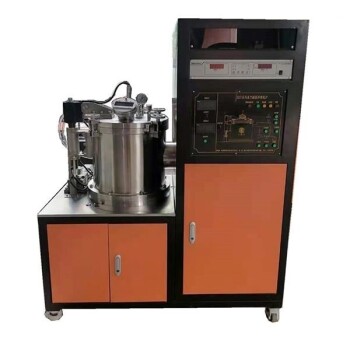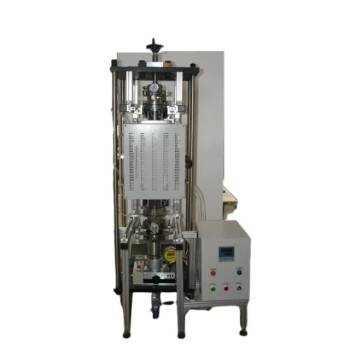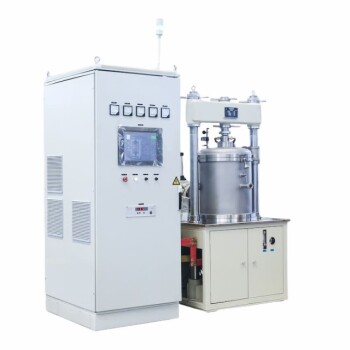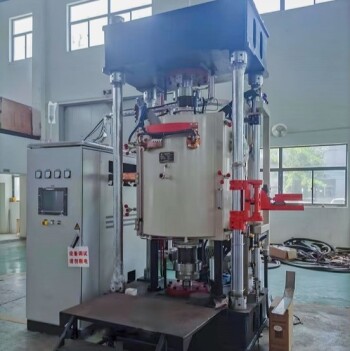Vacuum pumps are versatile devices used across a wide range of industries and applications to create, maintain, and improve vacuum conditions by removing gas molecules from sealed volumes. Their applications span industrial manufacturing, laboratory research, and specialized processes such as packaging, degassing, drying, and bottling. In industrial settings, they are essential for tasks like vacuum packaging, pick-and-place operations, and holding or lifting materials. In laboratories, vacuum pumps facilitate processes like aspiration, filtration, solvent evaporation, and gas sample collection. They are also integral to advanced scientific equipment such as mass spectrometers, rotary evaporators, and vacuum ovens. The ability to create controlled vacuum environments makes vacuum pumps indispensable in both industrial and scientific contexts.
Key Points Explained:

-
Industrial Applications:
- Vacuum Packaging: Vacuum pumps are widely used in vacuum packaging machines to remove air from packages, extending the shelf life of food and other perishable products by preventing oxidation and microbial growth.
- Pick and Place Machines: In manufacturing, vacuum pumps enable precise handling of materials by creating suction to lift and move components without physical contact, reducing the risk of damage.
- Drying of Components: Vacuum pumps are employed in drying processes to remove moisture from components, particularly in industries where water or solvents must be eliminated quickly and efficiently.
- Bottle Filling: In the beverage and pharmaceutical industries, vacuum pumps ensure accurate and contamination-free filling of bottles by creating a vacuum that draws liquids into containers.
- Holding and Lifting: Vacuum pumps are used in material handling systems to securely hold and lift objects, such as glass panels or sheets of metal, using suction cups.
-
Laboratory Applications:
- Aspiration and Filtration: Vacuum pumps provide suction for aspirating liquids or filtering suspended particles from liquid samples, which is critical in biological and chemical research.
- Solvent Evaporation Control: In concentrators and rotary evaporators, vacuum pumps reduce vapor pressure to accelerate solvent evaporation, enabling the concentration of solutions or the recovery of solvents.
- Gas Sample Collection: Vacuum pumps are used to collect gas samples from test chambers or the atmosphere for analysis in environmental and chemical studies.
- Negative Pressure for Safety: In laboratories handling hazardous materials, vacuum pumps create negative pressure to prevent leaks and ensure the safe containment of toxic or volatile substances.
-
Specialized Scientific Equipment:
- Mass Spectrometers: Vacuum pumps are essential in mass spectrometry to maintain the high vacuum required for accurate detection and analysis of molecules.
- Vacuum Ovens and Desiccators: These devices rely on vacuum pumps to remove moisture or other gases, ensuring controlled drying or storage conditions for sensitive materials.
- Gel Dryers: In molecular biology, vacuum pumps are used in gel dryers to remove liquids from gels, preserving samples for further analysis.
- Rotary Evaporators: Vacuum pumps enable the efficient evaporation of solvents in rotary evaporators, a common tool in chemical laboratories for separating mixtures.
-
Cross-Industry Utility:
- Creating and Maintaining Vacuum: Vacuum pumps are fundamental in creating and maintaining vacuum conditions across industries, whether for packaging, manufacturing, or scientific research. Their ability to remove gas molecules from sealed volumes makes them indispensable in processes requiring controlled environments.
- Degassing: In industries like plastics and composites, vacuum pumps are used to remove trapped air or gases from materials, ensuring the quality and integrity of the final product.
-
Advantages in Industrial and Laboratory Settings:
- Efficiency: Vacuum pumps enhance process efficiency by enabling rapid evacuation of air or gases, reducing processing times in applications like drying or solvent evaporation.
- Precision: In both industrial and laboratory settings, vacuum pumps provide precise control over vacuum levels, ensuring consistent and reliable results.
- Safety: By creating negative pressure, vacuum pumps help prevent contamination and leakage, particularly when handling hazardous materials.
In summary, vacuum pumps are critical tools in a wide array of applications, from industrial manufacturing to advanced scientific research. Their ability to create and maintain vacuum conditions enables processes that would otherwise be impossible or inefficient, making them a cornerstone of modern technology and industry.
Summary Table:
| Application Area | Key Uses |
|---|---|
| Industrial Applications | - Vacuum packaging - Pick and place machines - Drying components - Bottle filling - Holding and lifting |
| Laboratory Applications | - Aspiration and filtration - Solvent evaporation - Gas sample collection - Negative pressure for safety |
| Scientific Equipment | - Mass spectrometers - Vacuum ovens - Gel dryers - Rotary evaporators |
| Cross-Industry Utility | - Creating and maintaining vacuum - Degassing |
| Advantages | - Efficiency - Precision - Safety |
Discover how vacuum pumps can optimize your processes—contact us today for expert advice!












